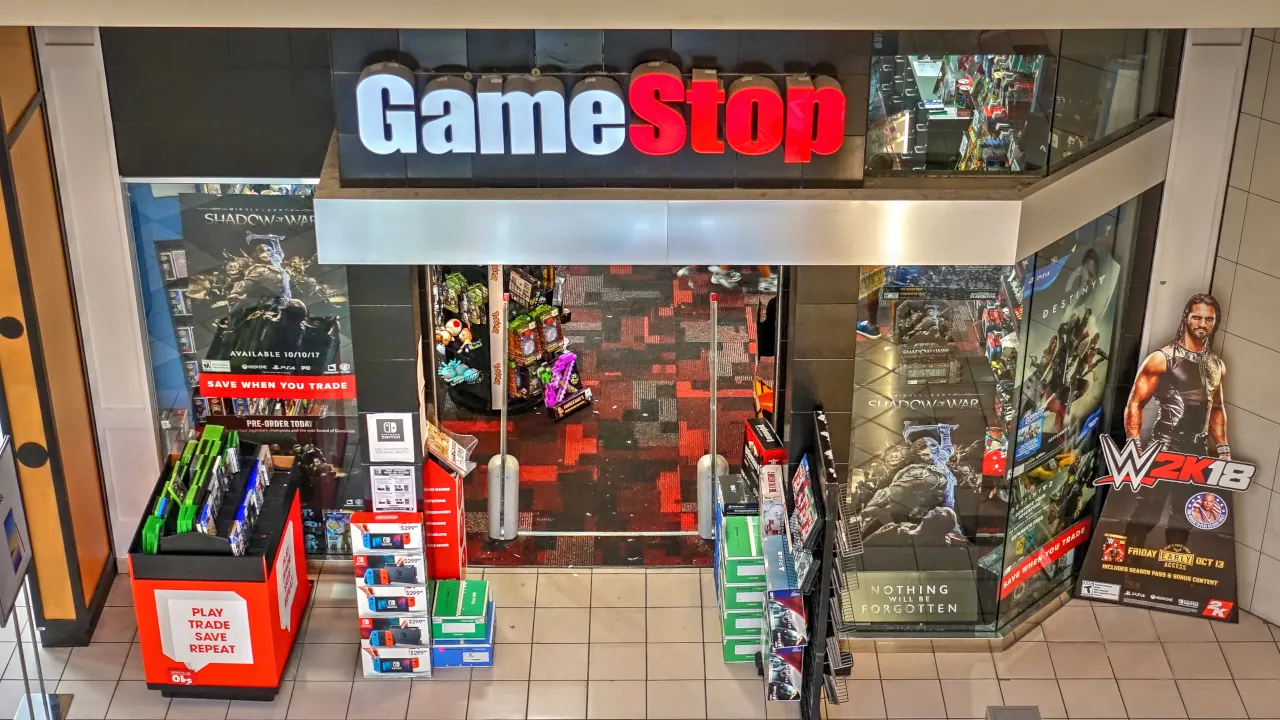GameStop’s short squeeze in 2021 taught the Securities and Exchange Commission (SEC) several key lessons. Among those highlighted in a Monday speech by SEC Chair Gary Gensler was the need to modernize equity markets, in part by embracing shorter settlement times.
A retail-led movement to bet big against Wall Street short sellers caused GameStop’s stock price to spike nearly four years ago amid the “meme stock” craze. Forced to hold or sell shares skyrocketing in price, restrictions imposed by several brokerage firms blunted the rally that was later enshrined in stock market history and recounted in books and films.
Gensler, an unwavering critic of the digital assets industry, partly pinned the restrictions on a lack of market efficiency. Ultimately, a shift toward shorter settlement times—that experts say blockchains benefit from—improved upon mechanics that stifled some GameStop investors.
“Many everyday investors lost access to the market at a critical time,” Gensler said. “The longer it takes for a trade to settle—the slower the plumbing—the more risk our markets assume.”
When purchasing or selling a stock on a venue like the New York Stock Exchange, there is a delay between when the transaction is made and when it becomes fully processed across a series of intermediaries, including a broker-dealer, clearing agency, and exchange.
Notably, the SEC has accused crypto exchanges like Binance and Coinbase of fulfilling several of these roles at once, without proper registration, while facilitating securities transactions. Both companies have denied the regulator’s claims amid ongoing battles in federal courts.
Once conducted through paper checks and physical certificates, the settlement window for securities has been shortened with SEC rule changes over time. Commonly referred to as T+2, a two-day settlement window was reduced in May, making what Gensler said was “a real difference” for everyday investors.
At the same time, the shift to T+1 influenced the relationship between brokers, which match buyers and sellers, and clearinghouses that facilitate the exchange of securities and payments.
Margin calls from clearinghouses led some brokers to restrict purchases of GameStop stock during its famed short squeeze in 2021. But the “amount of margin, or collateral, that must be placed with the clearinghouse” was reduced significantly with T+1’s adoption, Gensler said.
Gensler’s GameStop reflection followed crypto-focused remarks from Federal Reserve Governor Christopher Waller last week. Discussing the merits of decentralized finance (DeFi), he described how intermediaries have historically provided value—but now face competition.
As reflected in the popularity of centralized crypto exchanges, Waller posited that DeFi could play a complementary role to existing financial markets, rather than replace legacy systems. Along those lines, he said distributed ledger technology (DLT) like blockchain could be an “efficient and faster way to do recordkeeping,” while smart contracts flatten trade structures.
“Smart contracts can effectively combine multiple legs of a transaction into a single unified act,” Waller said. “This can provide value, as it can mitigate risks associated with settlement.”
Companies like tZERO are building blockchain-based marketplaces for private securities. The Utah-based firm gained approval from the SEC and Financial Industry Regulatory Authority (FINRA) to operate as a custodian for digital assets sold as securities last month.
In early 2025, the firm plans to launch with a “full digitization” of its Series-A preferred equity. But Wall Street tastemakers have visions for a crypto-based market extending far beyond that.
BlackRock CEO Larry Fink hailed tokenization as the “next generation for securities” in 2022. Using a digital representation of an asset to conduct trades on a blockchain, he said the process would provide market participants with “instantaneous settlement” and “reduced fees.”
Alongside the crypto’s rise, financial firms have looked at other qualities inherent to blockchains, such as the 24/7 schedule that they operate under within the context of trading. Crypto markets don’t close, which can provide both opportunities and risks alike.
In April, the Financial Times reported that the New York Stock Exchange was exploring round-the-clock trading. The development would be a significant break from the exchange’s regular six-and-a-half hour trading window, extended as recently as 1985.
Edited by Andrew Hayward

